Economics Teaching Resources
Teach economics in primary school this year with needs and wants worksheets, activities about goods and services and more. Each teacher-created resource in this collection has been created with your lesson plans and your students in mind.
Aligned with the Australian HASS curriculum, this collection is home to both editable and differentiated resources you can use to enhance students' understanding of the basic encomic principles that will provide a foundation for their learning in secondary school.
Is this your first year teaching the economics standards in the curriculum, or are you just looking for some fresh ideas? Read on for some tips from our teacher team, including how to explain needs and wants to young students.
What Is the Difference Between Needs and Wants? How to Explain It to Kids
Ah, this is the crux of what you’re teaching, isn’t it? Our students need to learn that our needs are essential, while our wants are optional. To help you help them, here’s a simple way to break down the difference for young primary students.
Needs
Needs are defined as the things that people must have in order to survive. Needs usually remain the same. We always need food and water to survive, for example.
Wants
Unlike needs, wants are things that people would like to have but do not necessarily need to survive. Wants usually change over time. One day you might want a particular toy, but a few years later, you might want something else!
Examples of Needs and Wants for Kids
Examples can go a long way in helping your students understand this economic concept better. After all, it makes the theoretical more concrete. So let’s take a look at some kid-friendly examples of both of these economic concepts.
Examples of Needs for Kids
- Food
- Water
- Shelter
- Clothing
Examples of Wants for Kids
- Toys
- Candy
- Fancy shoes or clothing
- Food from a restaurant
What Is Scarcity? A Kid-Friendly Definition
The concept of scarcity can be a tough one for kids to understand, so here’s a kid-friendly definition to use with your students: Scarcity means we cannot get all of the things we want or need because there is only a limited number.
We have to make choices about what we will take or how we will use things because there is only so much to go around. For example, if there is only one toy truck, and two students want to play with the truck, then they will have to take turns or find another toy to play with.
What Are Goods and Services? A Kid-Friendly Definition
Here’s how our teacher team breaks down goods and sercices and explains their differences:
- Goods are physical items that people buy or use to satisfy their needs and wants. We can touch goods!
- Services are actions or activities that people pay for to meet their needs and wants. We can’t touch services because they aren’t tangible.
Teaching Goods and Services — Fun Activities
This collection is stocked with plenty of printable and digital activities, but to help you get inspired, here are a few more ideas from our teacher team!
- Go to Market! Break students into small groups. Have each group create a good or service, advertise and then buy/sell their creation at a classroom marketplace. This is a great project for early years students to demonstrate their learning!
- Business Partnership Challenge. Have students work in small groups to create a partnership between two small businesses. Each group can represent a different business and negotiate partnership agreement terms, such as how they will share profits and resources. Students should be thinking about the benefits and challenges of partnering with another business and how partnerships can help small businesses succeed.
- Meet an Entrepreneuer. Explore the role of small businesses in the economy by inviting a local entrepreneur to visit your classroom. Before the visit, brainstorm questions as a class to ask the entrepreneur about the challenges and rewards of starting a business.
Read on for more useful information about goods and services for your lesson plans!
Goods and Services Examples for Kids
Looking for some goods and service examples your students can actually relate to? We’ve got you covered!
Goods Examples for Kids
- Toys
- Pencils
- Books
- Pizza
- Cars
- Computers
- Gluesticks
- Paper
Services Examples for Kids
- Rubbish removal
- Music lesson
- Dentist appointment
- Car repair
- Plumbing service
- Dog grooming
- Pizza delivery
- House painting
- Babysitting
- Dog walking
Important Goods and Services Vocabulary
Here are a few important vocabulary terms for your economics lessons.
- Consumer — A person who buys and uses goods and services
- Producer — A person or business that makes or provides goods and services
- Supply — The amount of goods and services that are available for sale
- Demand — The amount of goods and services that people want to buy
- Trade —The exchange of goods and services between countries or individuals
- Entrepreneur — A person who starts and runs a business, taking on financial risk in the hope of making a profit
- Plus Plan
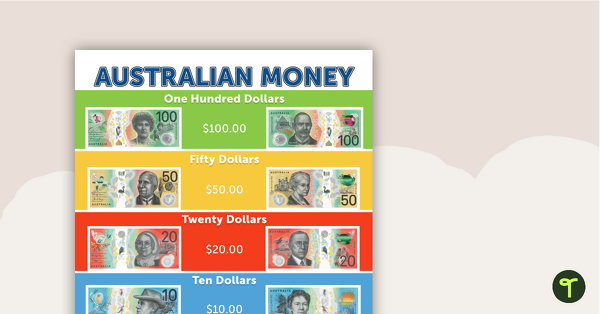
Australian Currency Poster
A visual stimulus showing all of the Australian currency and the different ways they are written.
- Plus Plan
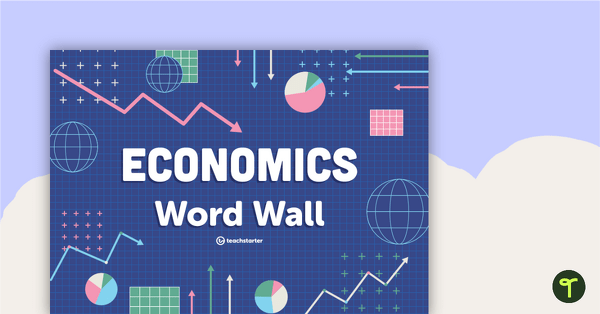
Economics Word Wall Vocabulary
A set of vocabulary word wall cards to use for a unit on economics.
- Free Plan
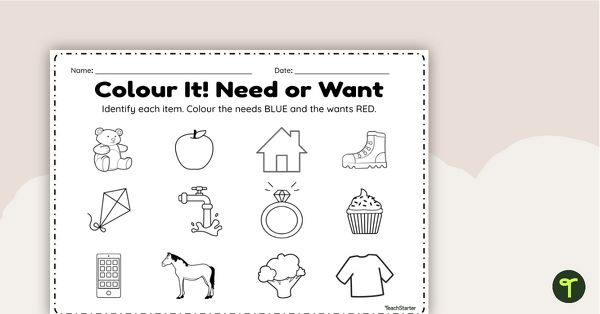
Colour It! Need or Want Worksheet
Identify examples of needs and wants with this colour-coding activity.
- Plus Plan
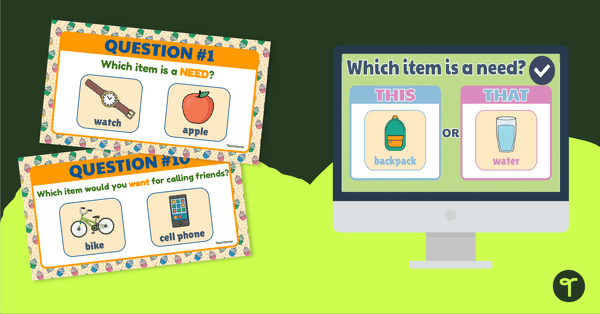
This or That! PowerPoint Game - Needs and Wants
Practice identifying needs and wants with an active game designed to get your students moving and learning.
- Plus Plan
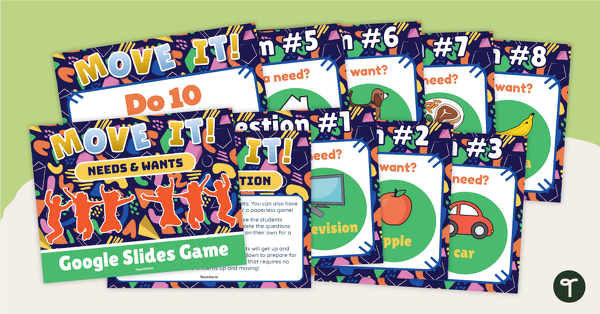
Move It! - Needs and Wants PowerPoint Game
Get up and moving with an active game while identifying and describing examples of needs and wants.
- Plus Plan
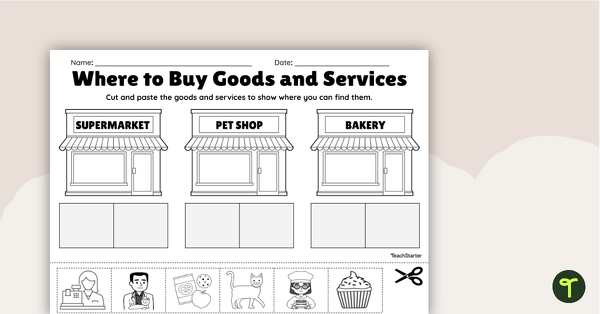
Where to Buy Goods and Services - Worksheet
Identify places and people in the community that provide goods and services with a cut and paste sorting worksheet.
- Free Plan
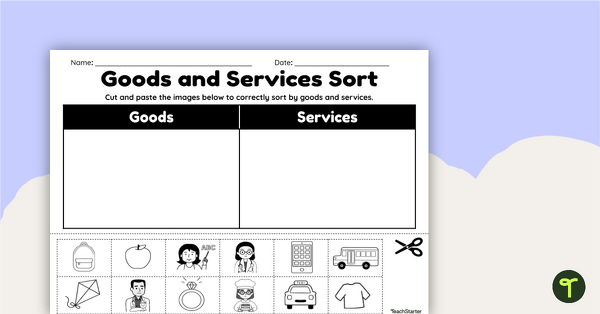
Goods and Services - Cut and Paste Worksheet
Identify examples of goods and services with a cut-and-paste sorting worksheet.
- Free Plan
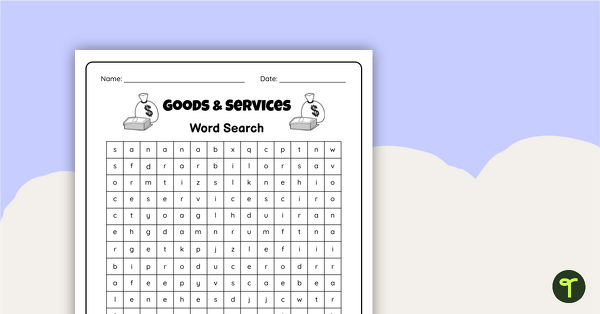
Goods and Services Word Search
Stretch your students’ business vocabulary with this economics-focused word search that features examples of goods and services.
- Plus Plan
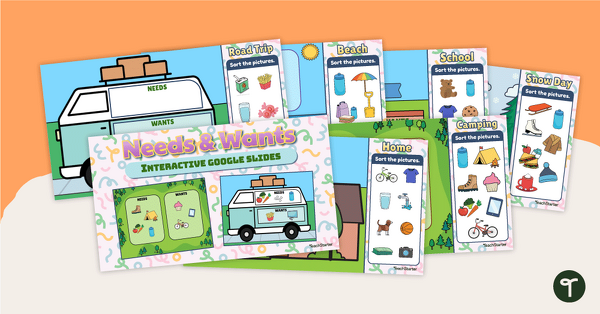
Needs and Wants - Interactive Activity
Differentiate between needs and wants in the community with a digital learning tool.
- Plus Plan
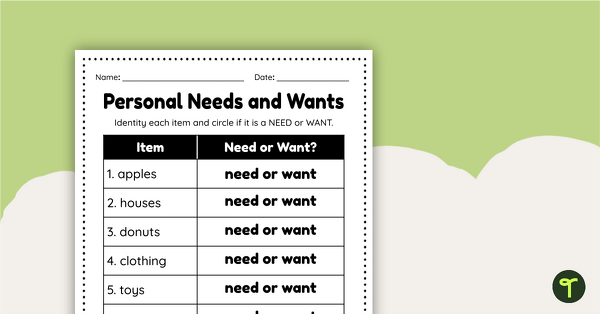
Personal Needs and Wants - Worksheet
Identify the difference between personal wants and needs with this one-page worksheet.
- Plus Plan
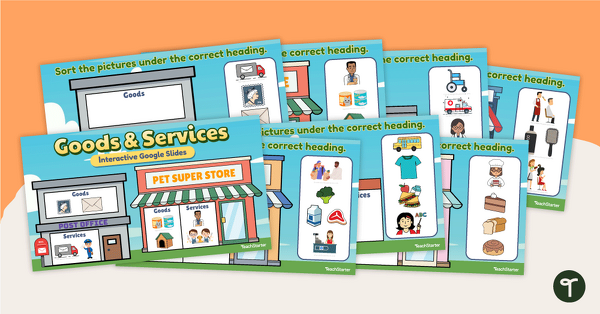
Goods and Services - Interactive Activity
Identify and sort goods and services in locations around the community.
- Plus Plan
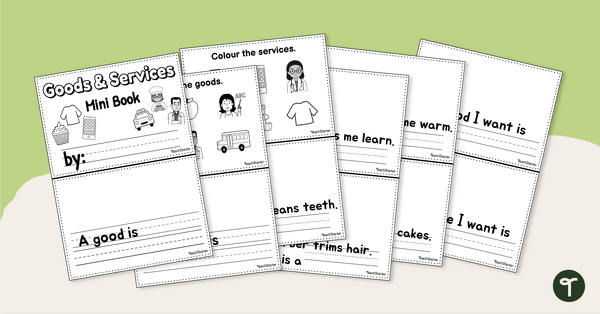
Goods and Services Mini Book
Read, write and draw to learn about goods and services with a printable mini-book.
- Plus Plan
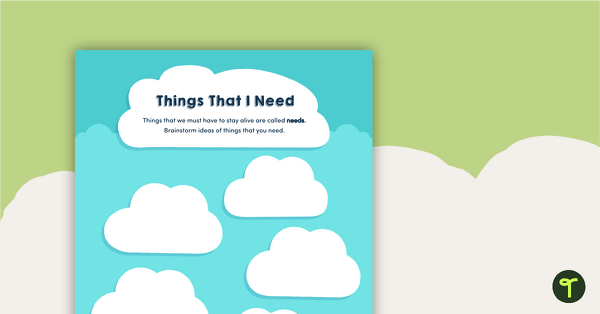
Needs vs. Wants Activity
An activity to brainstorm and sort needs and wants.
- Plus Plan
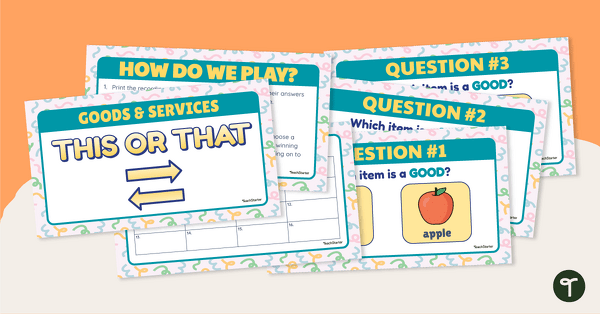
This or That! PowerPoint Game - Goods and Services
Practise identifying examples of goods and services with an active game designed to get your students moving and learning.
- Plus Plan
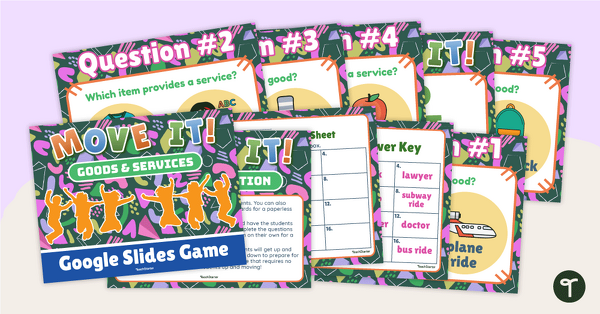
Move It! - Goods and Services PowerPoint Game
Get up and moving with an active game while identifying and describing examples of goods and services.
- Plus Plan
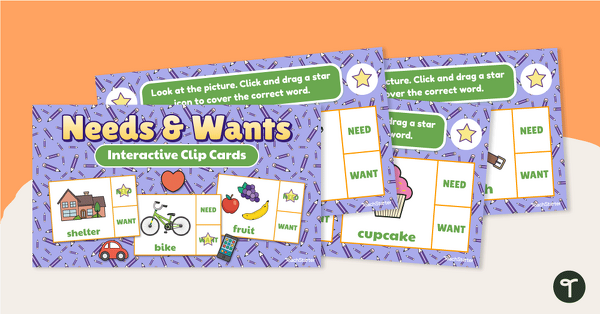
Needs and Wants - Interactive Peg Cards
Turn needs and wants lessons into digital learning experiences with Google Slides Interactive clip cards.
- Plus Plan
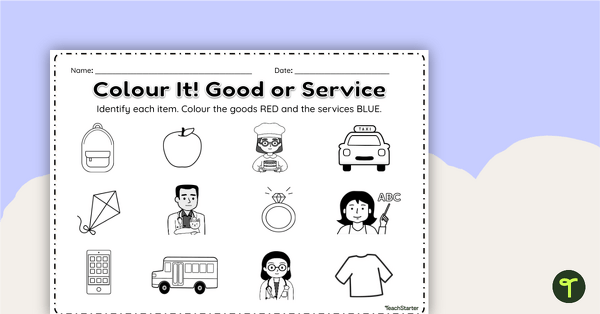
Colour It! Good or Service Worksheet
Identify examples of goods and services with a colouring activity.